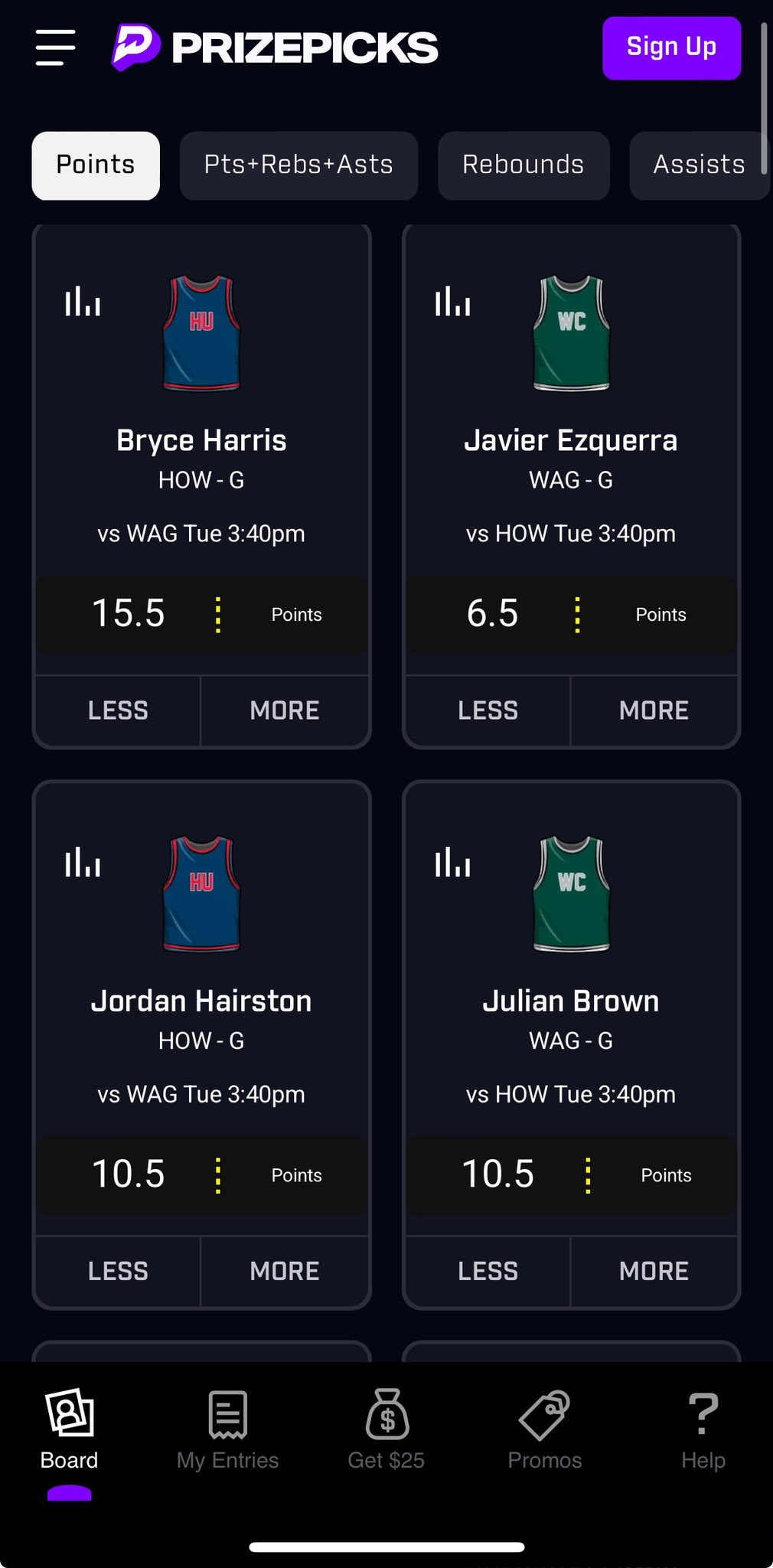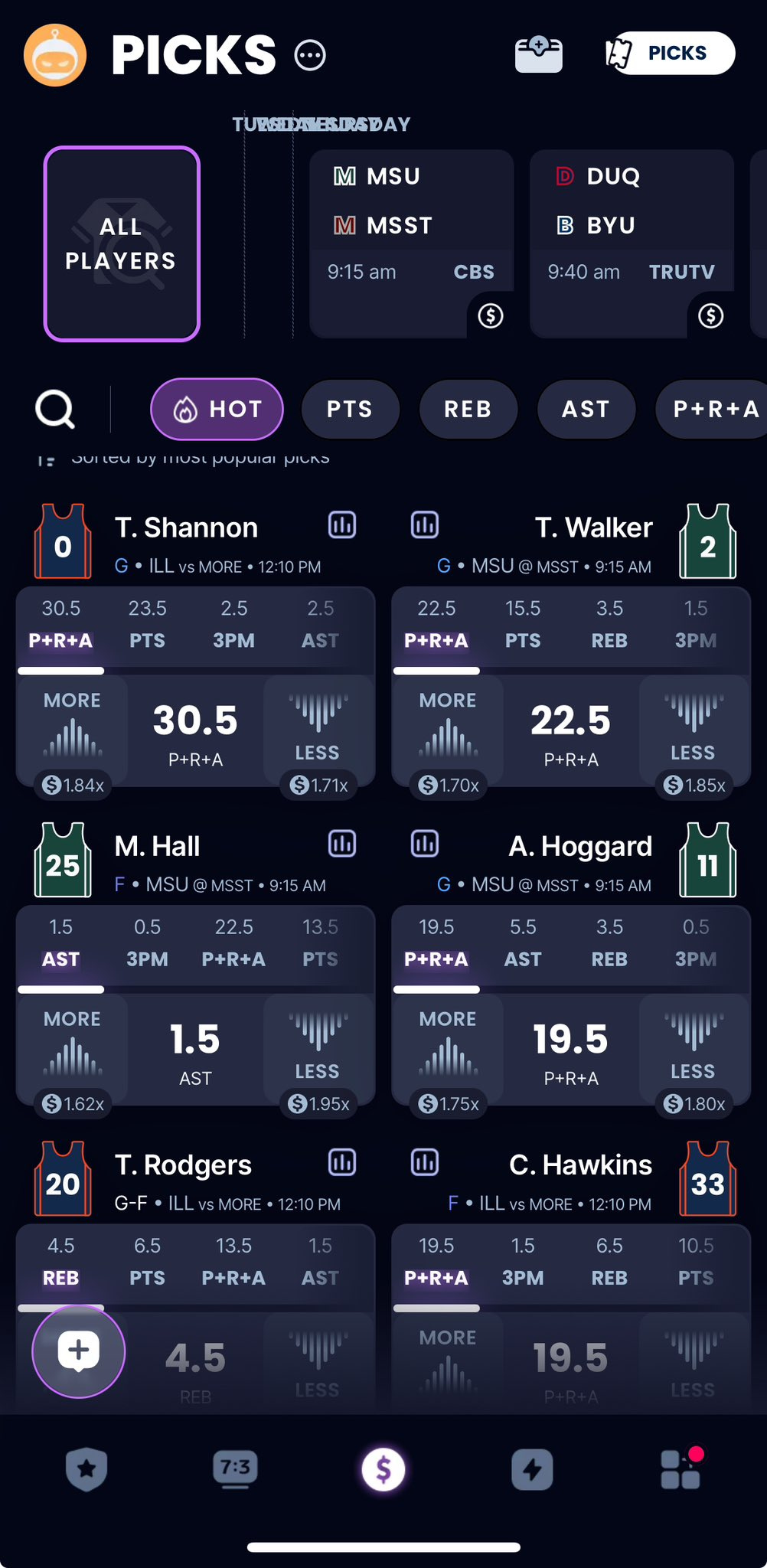Here’s today’s quick rundown in the world of US gambling.
Enter Rebet sportsbook
A press release this morning presents Rebet as a “new free-to-play social sportsbook.” While there is a lot of social and peer-to-peer functionality, at its core it’s another sweepstakes sportsbook. It’s a lot like incumbent Fliff, which dominates this niche market. I am not going to go through the whole legal justification for sweepstakes. Suffice it to say there are ways to get the in-app currency for free, much like you can get free entries in any sweepstakes. But you can also get the in-game currency as a “bonus” for buying free-play coins; you can then convert the currency to cash prizes after it’s been wagered. Long story short: It’s a (probably, mostly) legal way to offer a sportsbook, based on current laws and climate (I AM NOT A LAWYER). Interestingly, Rebet serves 47 states, including apparently Washington state, which might be the most negative jurisdiction for operating anything that smells anything like online gambling. It’s also incorporated in Nevada, one of the states it does not serve. The sweepstakes category has thus far avoided the kind of crackdown that has befallen fantasy sports vs. the house, except for in Michigan. It’s not clear how much longer the status quo can persist, especially if a new entrant is doing major PR efforts. Fliff, for its part, has chosen to do what it does a lot more quietly than this.
Closing Line Consulting
Need help with gambling content, communications/PR, or research and analysis? I’m starting a consultancy to help companies in the gaming industry and beyond. Reach out if you want to have a conversation. Learn more about CLC here.
Temple, props and college sports betting
Everyone arguably dodged a bullet when Temple fell just short of receiving an automatic bid to the NCAA men’s basketball tournament on Sunday. There are still lots of questions about an investigation into suspicious line movements, but those questions would have been amplified by orders of magnitude if Temple was a part of March Madness. Some sportsbooks were not taking bets on Temple games during last week’s American Athletic Conference tournaments. Would that have persisted in the tournament? Would we have gotten any more information about the investigation? Those questions go unanswered as we wait for the results of said investigation, or any deeper reporting into what, if anything, was happening around Temple’s basketball program.
Also as March Madness ramps up, there will continue to be chatter about whether college player prop bets are appropriate for the regulated sports betting industry in the U.S. While the hand-wringing over that continues, I’ll remind people that you can parlay college player props for March Madness with at least a handful of fantasy vs. the house apps, including at two of the biggest ones, in more than 20 states (see below). You also have offshore sportsbooks marketing to bettors that they still take player props.
A picture of the legality of fantasy sports parlays here.
Quick hitters
Maryland passed an online casino bill through the House, but it still faces an uphill battle.
ESPN is finally putting links to ESPN Bet on content.
The Closing Line is a publication of +More Media.
For sponsorship inquiries, contact me or email scott@andmore.media.









It is a relief temple didn’t make it to the tourney as that would have brought controversy to an already heated debate so to speak regarding college betting. I hope it’s a nothing burger but I’m concerned it could be bad news thus the backlash grows on sports betting with more federal Legislation introduced which I do see coming regardless as seen here https://sportshandle.com/new-york-congressman-pitches-new-bill/ in full and the escalation to possibly ban college betting which would be disastrous for the legal market thus driving the $$$$ offshore. As it regards player props I pray we get rationally to this as the decisions by Ohio, Maryland and Vermont were over reactionary and not done properly. We are six years into this and we have some gaming commissions that over regulate which is not good for the industry. The states that are doing that seem to want to potentially destroy the golden goose badly